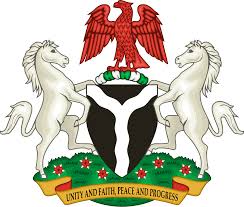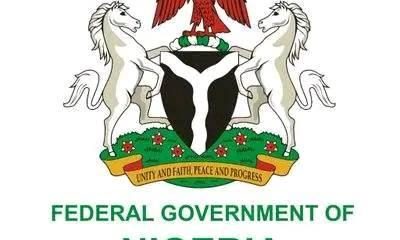

News
FG Releases ₦2.3bn to Settle University Salary and Promotion Arrears
FG Releases ₦2.3bn to Settle University Salary and Promotion Arrears
The Federal Government of Nigeria has released ₦2.3 billion to settle outstanding salary and promotion arrears owed to staff across federal universities. The payment represents Batch 8 of the government’s ongoing efforts to clear inherited backlogs and improve the welfare of academic and non-academic staff in the tertiary education sector.

The Minister of Education, Dr. Olatunji Alausa, announced the release on Thursday in Abuja while briefing journalists on the Federal Government’s continued engagements with the Academic Staff Union of Universities (ASUU) and other tertiary institution unions.
According to Dr. Alausa, the disbursements were processed through the Office of the Accountant-General of the Federation (OAGF) and reflect the Tinubu administration’s resolve to promote fairness and transparency in university staff compensation.
“A total of ₦2.311 billion, representing Batch 8 salary and promotion arrears, has been released through the Office of the Accountant-General of the Federation to universities,” he said. “Benefiting institutions should begin to receive payment alerts anytime from now.”
The minister further revealed that the government had approved the full integration of the Earned Academic Allowance (EAA) into the salaries of university staff, beginning from 2026. This decision, he explained, aims to ensure that future payments are prompt, predictable, and sustainable, preventing the delays and disputes that have often led to industrial actions in Nigerian universities.
Needs Assessment Funding and Ongoing Reforms
Dr. Alausa also disclosed that additional funds had been released under the Needs Assessment of Nigerian Universities — a programme designed to upgrade infrastructure, enhance research facilities, and improve the general learning environment in federal universities. He assured that the government had made corresponding budgetary provisions to sustain this initiative in the coming years.
He emphasized that these financial commitments demonstrate the government’s genuine intention to address long-standing challenges within the university system. According to him, within the past twenty-six months, the Federal Government has already cleared a significant portion of the outstanding obligations owed to university workers.
“The Federal Ministry of Education assures that these engagements are being conducted truthfully and in good faith,” he said. “However, while the government remains committed to improving staff welfare, it will only enter into agreements that are realistic and financially sustainable.”
Dialogue and Sustainability
The minister reaffirmed the government’s commitment to maintaining open communication channels with all tertiary institution unions. He highlighted the ongoing work of the Yayale Ahmed Negotiating Committee, which serves as a bridge between the government and various university-based unions — including ASUU, the Senior Staff Association of Nigerian Universities (SSANU), and the Non-Academic Staff Union (NASU).
According to Dr. Alausa, the committee plays a crucial role in ensuring that all pending welfare and salary-related matters are addressed through mutual understanding and respect, rather than through prolonged industrial disputes.
He, however, stressed that while the government is willing to meet its obligations, it would not engage in unsustainable fiscal practices that could threaten the country’s financial stability.
“Our priority is to ensure that all matters are addressed responsibly and in the best interest of our education system,” he noted. “All commitments must align with approved budgetary provisions to guarantee long-term stability.”
Hope for Industrial Harmony
Dr. Alausa expressed optimism that the latest wave of reforms and financial interventions will usher in lasting industrial harmony, restore confidence in Nigeria’s university system, and strengthen institutional capacity for national development.
He said the Tinubu administration’s education reform agenda focuses on sustainability, fairness, and accountability — values he believes will lay the foundation for a more stable and productive academic environment.
“We are not just paying arrears,” the minister added. “We are building a transparent system that guarantees fairness to our academic community while safeguarding the financial health of the nation.”
The ₦2.3 billion release marks another milestone in the Federal Government’s broader plan to ensure peace, stability, and improved staff welfare across Nigeria’s public universities.

















